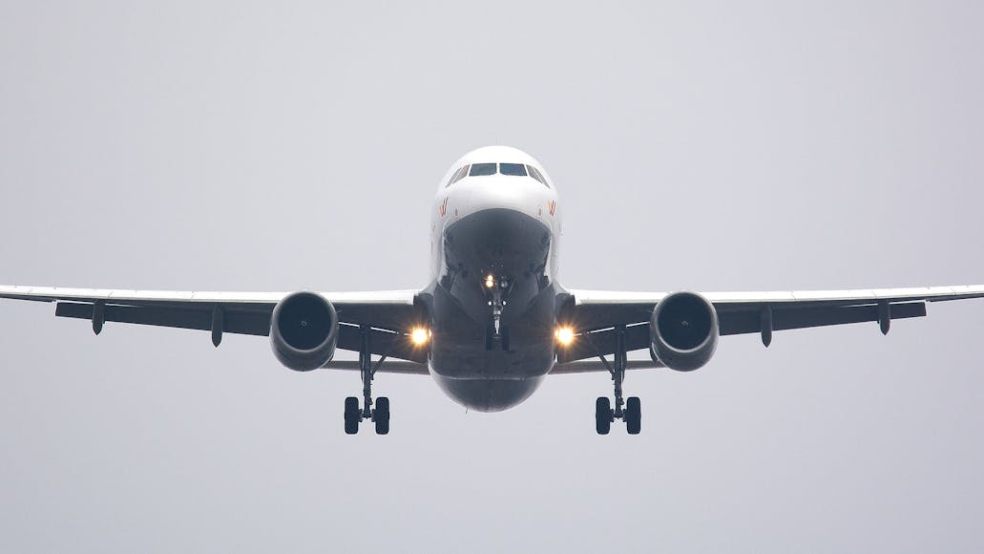
CarbonClick’s Sustainable Aviation Fuel Program
The aviation industry is at a juncture, facing increasing pressure to reduce its carbon footprint amid growing climate concerns. As global awareness of environmental issues grows, organizations are seeking innovative solutions to combat climate change. Among these solutions, sustainable aviation fuel (SAF) emerges as a sign of hope. This article explores the landscape of sustainable aviation fuel, focusing on the initiatives and partnerships like those developed by CarbonClick that aim to make air travel greener and contribute to the industry's broader decarbonization efforts.
Sustainable aviation fuel, a renewable alternative to conventional fossil fuels, can significantly reduce greenhouse gas emissions when compared to traditional jet fuels. The production of SAF often involves feedstocks such as waste oils, agricultural residues, or even non-food crops. This not only fosters a circular economy but also aligns with global sustainability goals. The potential of SAF is vast, promising to address the dual challenge of increasing air travel demand and the urgent need to mitigate climate change.
The aviation sector contributes about 2.5% of global carbon dioxide emissions, and this figure is expected to rise with the increasing number of air travelers. As the world aims for net-zero emissions by 2050, the aviation industry is under pressure to innovate. CarbonClick, a leading climate tech firm from New Zealand, has recognized the importance of this transition. Their partnership with SCB Group marks a significant step toward curating a comprehensive carbon credit portfolio aimed specifically at the aviation sector.
This partnership strives to provide airlines with a “one-stop solution” for carbon reduction and offsetting efforts. By integrating advanced technology with a robust understanding of carbon markets, CarbonClick and SCB Group are working to facilitate the adoption of SAF within the aviation industry. The portfolio includes high-quality carbon credits from a variety of sources, including mandatory compliance targets and voluntary offset programs that can benefit passengers, employees, and corporate travel.
One of the most notable aspects of this collaboration is its focus on transparency and accountability. CarbonClick's CEO, Dave Rouse, emphasizes that advanced reporting and analytics will allow airlines to track their carbon emissions more effectively, ensuring that they can meet both compliance and voluntary goals. The partnership highlights the need for credible and diversified offerings in the realm of carbon credits. This includes nature-based and community-driven projects, Sustainable Aviation Fuel certificates, and Energy Attribute Certificates, all of which contribute to a more sustainable and responsible aviation sector.
The incorporation of sustainable aviation fuel into the aviation ecosystem is not merely a trend but a necessity. As airlines consider their roles in the fight against climate change, many are beginning to shift their focus toward SAF. For instance, the SAF market is expected to evolve significantly, with estimations suggesting it could exceed $25 billion by 2030. These projections are encouraging and signal strong momentum within the sector, driven by both regulatory pressures and consumer demand for more sustainable travel options.
Moreover, the production of SAF can help reduce reliance on traditional fossil fuels, thus supporting energy security and diversity. By employing innovative production methods, including feedstocks that do not compete with food supply, the industry can minimize the impact on agricultural systems. This dual benefit of promoting sustainability while maintaining food security enhances the overall attractiveness of SAF as a viable solution for the aviation industry.
Airlines such as Amadeus, Manchester Airports, Dublin Airport Authority, and Luxembourg Airport have shown a keen interest in integrating SAF into their operations. Through partnerships with firms like CarbonClick and SCB Group, these organizations are setting benchmarks for sustainable practices in aviation. They recognize that not only is reducing emissions critical for meeting regulatory targets, but it also improves their market positioning among environmentally conscious travelers.
The push for sustainable aviation fuel aligns well with the global objectives outlined in agreements such as the Paris Agreement, which calls for significant reductions in greenhouse gas emissions. As countries worldwide commit to reducing their carbon footprints, the aviation industry must actively participate in this transition. The integration of SAF represents a crucial strategy for compliance with international regulations such as the Carbon Offsetting and Reduction Scheme for International Aviation (CORSIA). This program promotes measures to stabilize international aviation emissions, making SAF a key player in achieving its goals.
In addition to regulatory compliance, airlines can leverage SAF as part of their corporate social responsibility initiatives. By investing in sustainable technologies and practices, airlines not only enhance their brand reputation but also meet the expectations of a growing segment of environmentally aware consumers. Travelers are increasingly choosing carriers that demonstrate commitment to sustainability, and offering SAF is a definitive way for airlines to showcase their dedication to reducing their environmental impact.
While the path to widespread adoption of sustainable aviation fuel is promising, it is not without challenges. These include the current high costs associated with SAF production compared to conventional fuels, as well as the limited availability of infrastructure for its distribution. However, ongoing advancements in technology and increased investment in production facilities could help alleviate these challenges. As more stakeholders enter the market, competition is likely to drive down costs, making SAF more accessible to airlines worldwide.
Moreover, collaborations between technology firms, fuel producers, and airlines can accelerate the research and development needed for innovative solutions in SAF production. Government incentives and policies supporting the development of green technologies will also play a vital role in shaping the future landscape of aviation fuel. By fostering a supportive environment for sustainable practices, governments can encourage the aviation sector's transition toward greener alternatives.
As we look ahead, the importance of initiatives like those from CarbonClick becomes increasingly evident. The company's focus on delivering high-integrity carbon credits aligned with sustainable aviation fuel represents a significant step in the right direction. By providing airlines with the necessary tools to transition toward sustainability, they are enhancing the aviation industry's capability to combat climate change effectively.
The journey towards a more sustainable aviation sector is undoubtedly complex and multifaceted, requiring cooperation and commitment from various stakeholders. Nevertheless, the potential rewards are immense — for the environment, for travelers, and for the industry itself. As airlines embrace sustainable aviation fuel and engage in comprehensive carbon reduction strategies, they will not only be mitigating their environmental impact but also paving the way for a greener future in air travel.
The collaboration between CarbonClick and SCB Group is a testament to the industry’s capacity for innovation and resilience. By combining expertise and resources, these organizations are setting new standards for carbon credit solutions within aviation. This partnership will undoubtedly contribute significantly to the broader efforts aimed at achieving net-zero emissions in the aviation sector, aligning it with global climate goals.
In conclusion, the emergence of sustainable aviation fuel represents a crucial turning point for the aviation industry. Through strategic partnerships, technological innovations, and a commitment to transparency, companies like CarbonClick and SCB Group are leading the charge toward a greener aviation future. As the world adapts to the realities of climate change, embracing sustainable practices within the aviation sector will be vital in ensuring the longevity and viability of air travel. The future of aviation is bright, with sustainable aviation fuel at the forefront, promising a significant reduction in emissions and a healthier planet for generations to come.
For further insights and updates on sustainable aviation initiatives, consider exploring resources like CarbonClick and other reputable organizations that are championing this vital cause.














